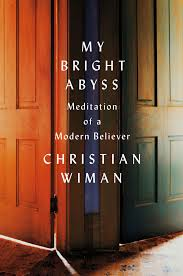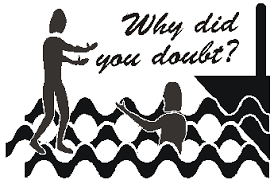 In Bird by Bird, the best book on writing that I have read, Anne Lamott tells the writing wannabe to “write what you would love to find.” That’s great advice—but of course that means the prospective writer has to do a lot of reading. At least I do, since I often don’t know what I would “love to find” until I find it. When things get busy, when I tell myself that I don’t have the time to read anything other than what I’ve assigned my students for the week (since it’s always a good idea to be a class or two ahead of them), my blog writing begins to resonate like vibrations in an echo chamber or the sound of one hand clapping.
In Bird by Bird, the best book on writing that I have read, Anne Lamott tells the writing wannabe to “write what you would love to find.” That’s great advice—but of course that means the prospective writer has to do a lot of reading. At least I do, since I often don’t know what I would “love to find” until I find it. When things get busy, when I tell myself that I don’t have the time to read anything other than what I’ve assigned my students for the week (since it’s always a good idea to be a class or two ahead of them), my blog writing begins to resonate like vibrations in an echo chamber or the sound of one hand clapping.  When I tack a new paragraph at the beginning of an essay I wrote a year ago and call it a new essay, I know it’s time to find another hand to clap with.
When I tack a new paragraph at the beginning of an essay I wrote a year ago and call it a new essay, I know it’s time to find another hand to clap with.
In my current state of affairs, this happens during semester or summer break. Last summer was filled with reading multiple volumes of Scandinavian noir mysteries which provided me with new ways to consider the familiar. What would I discover during the all-too-short Christmas break between semesters that just ended? I have learned to trust the apparently random suggestions of friends and colleagues for new reading material over the years, and once again they delivered. Thanks to two friends, I have discovered two more authors to love and to use as new sparks of writing energy.
The first suggestion came from my friend and colleague Bill, who occupies the office directly across the hall from mine in our still-new cathedral to the humanities. Bill and I know each other well; we have taught on an interdisciplinary faculty team together, have frequently talked about pedagogical issues, and share the privilege (?) of having directed the program I currently run (he was the director before I was).  Bill brings his sons to his office on occasion—they like to peek into my office to see the penguins. And Bill reads my blog. One morning not long ago he said “I’m reading a book you would like. It’s called My Bright Abyss; Christian Wiman is a poet, but this is sort of a spiritual memoir. It’s tough reading at times, but he writes about the sort of things you write about.” On Bill’s recommendation I ordered it from Amazon, despite Wiman’s being a poet (I have frequently described myself as “poetry challenged”).
Bill brings his sons to his office on occasion—they like to peek into my office to see the penguins. And Bill reads my blog. One morning not long ago he said “I’m reading a book you would like. It’s called My Bright Abyss; Christian Wiman is a poet, but this is sort of a spiritual memoir. It’s tough reading at times, but he writes about the sort of things you write about.” On Bill’s recommendation I ordered it from Amazon, despite Wiman’s being a poet (I have frequently described myself as “poetry challenged”).
Boy was Bill right. One of the many things I love to find is well-trampled territory described as if the author just discovered it for the first time.
Faith steals upon you like dew: some days you wake and it is there. And like dew, it gets burned off in the rising sun of anxieties, ambitions, distractions.
Ain’t it the truth? I call myself a “person of faith” regularly, but that makes faith sound like something that—once the decision is made—is a regular part of one’s daily apparel like shoes or underwear. But faith is much more ephemeral than that, something that Wiman captures perfectly. When Jesus asks Peter, whom he has just rescued from drowning at the end of Peter’s ill-fated effort to walk on water,  “Oh you of little faith, why did you doubt?” I’m hoping Peter answered (or at least thought) “Because I’m a human being and this faith thing is like a magic trick: Now you see it, now you don’t.”
“Oh you of little faith, why did you doubt?” I’m hoping Peter answered (or at least thought) “Because I’m a human being and this faith thing is like a magic trick: Now you see it, now you don’t.”
Wiman also has little resonance with the notion of finding comfort in religious belief. My students often suggest that “comfort” is the main attraction of faith commitment: comfort that “all things work together for good” and comfort that in an afterlife “everything will work out.” The next time I hear that in a classroom discussion (or anywhere else), I’ll introduce this from My Bright Abyss:
 Christ is a shard of glass in your gut. Christ is God crying I am here, and here not only in what exalts and completes and uplifts you, but here in what appalls, offends, and degrades you, here in what activates and exacerbates all that you would call not-God. To walk through the fog of God toward the clarity of Christ is difficult because of how unlovely, how “ungodly” that clarity often turns out to be.
Christ is a shard of glass in your gut. Christ is God crying I am here, and here not only in what exalts and completes and uplifts you, but here in what appalls, offends, and degrades you, here in what activates and exacerbates all that you would call not-God. To walk through the fog of God toward the clarity of Christ is difficult because of how unlovely, how “ungodly” that clarity often turns out to be.
Imagine if Jesus had said that “following me will be like a shard of glass in your gut.” How many followers would that have attracted? Come to think of it, though, the gospels claim that Jesus said many things like that. We just tend to ignore them.
My other Christmas break discovery came to me when my good friend Marsue asked if I had ever read  Learning to Walk in the Dark by Barbara Brown Taylor. “I want to get it for you,” she said, “but the last time I got you a book you already had it.” I had not read any of Taylor’s work, but her books have showed up frequently enough in the “Suggested Reading” on my Amazon Prime site (which I guess is generated based on what I have purchased in the past) that I have had this very book on my “Wish List” for a few months. Not wanting to undermine Marsue’s intended generosity, but taking this suggestion from a trusted friend seriously, I read three of Taylor’s other books over break. Not only have I found another literary soul mate, Jeanne is reading these books as well.
Learning to Walk in the Dark by Barbara Brown Taylor. “I want to get it for you,” she said, “but the last time I got you a book you already had it.” I had not read any of Taylor’s work, but her books have showed up frequently enough in the “Suggested Reading” on my Amazon Prime site (which I guess is generated based on what I have purchased in the past) that I have had this very book on my “Wish List” for a few months. Not wanting to undermine Marsue’s intended generosity, but taking this suggestion from a trusted friend seriously, I read three of Taylor’s other books over break. Not only have I found another literary soul mate, Jeanne is reading these books as well.
Barbara Brown Taylor’s Leaving Church is her memoir of how tending for her own spiritual health and growth required her leaving the active Episcopal priesthood, a story that I resonated with at many points. Her treatment of suffering and the book of Job in  An Altar in the World, however, was unforgettable, beginning with her memorable description of why pain and suffering are not logical puzzles to be solved or abstract challenges to faith to be overcome.
An Altar in the World, however, was unforgettable, beginning with her memorable description of why pain and suffering are not logical puzzles to be solved or abstract challenges to faith to be overcome.
Pain is so real that less-real things like who you thought you were and how you meant to act can vanish like drops of water flung on a hot stove. Your virtues can become as abstract as algebra, your beliefs as porous as clouds.
I have for the most part been mercifully free in my life thus far from the sort of paralyzing pain that she is describing. I also have no reason to believe that the faith I care about and profess would mean much of anything in the face of such pain. But her directness and honesty is unusual and much appreciated from a priest and theologian. She’s excellent at “making it real”—something I continue to strive for both in my writing and in my life.
What would I like to find (and what am I interested in writing)? Anne Lamott is right—the answer is often the same to both questions. A friend and colleague the other day asked who the audience is for what I write. I couldn’t believe it when I answered “I guess my audience is people like me.” I’m writing in the hope that once in a while something I write will be what someone else will love to find. I write for people who might resonate, as I do, with Christian Wiman’s analogy for the life of faith:
To live in faith is to live like the Jesus lizard, quick and nimble on the water into which a moment’s pause would make it sink.












